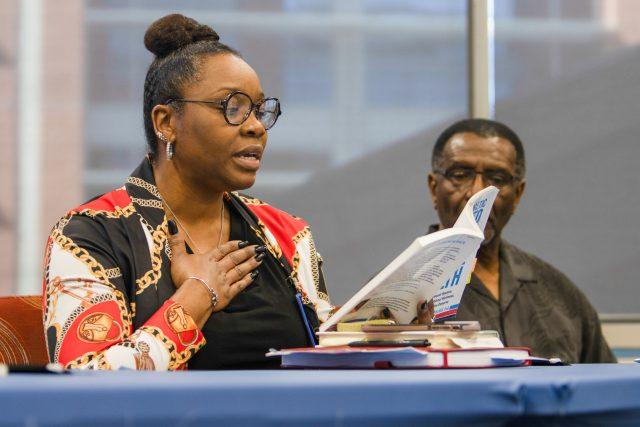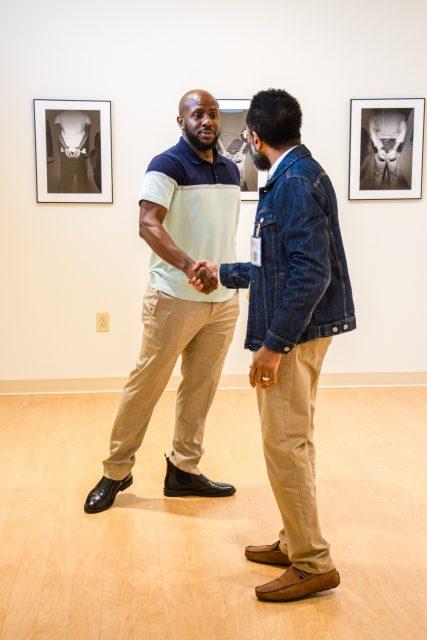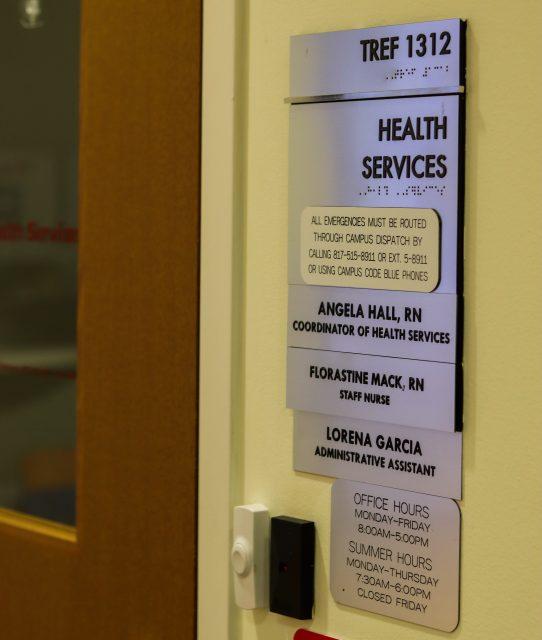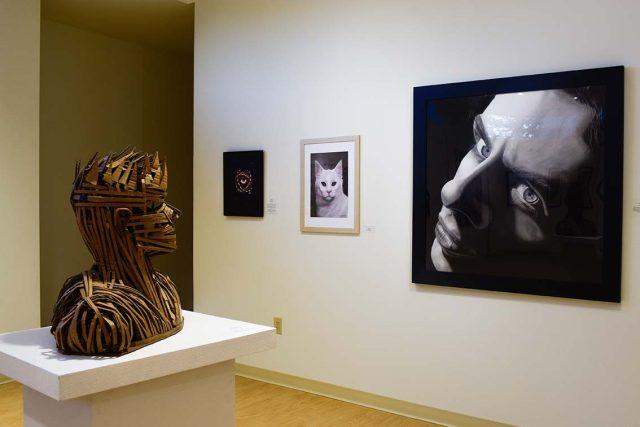IRENE DOMINGUEZ
campus editor
irene.dominguez370@my.tccd.edu
At least 50% of students identify as first-generation. This means that neither of their parents obtained a college degree.
TR Campus’ TRiO Student Support Services Program: National 1st Generation Student Celebration was held Nov. 8.
TRiO is a federally funded program serving students who are income-eligible, have a documented disability or are first-generation college students.
Chasity Alexander, director of TRiO student support services, welcomed the audience to the event and recognized TRiO participants.
Anthony Walker, director of campus initiatives, introduced several panelists that were there to have a discussion about the struggles of being a first-generation student and how that has impacted their life.
Walker began the discussion by asking the panelists what made them want to go to college, for students at TCC this can be a complicated question.
TR student Dani Mares didn’t know if she was going to be able to go to college or where she would live, but she didn’t let that stop her from forging her own way.
“I never really knew all the opportunities that I had,” Mares said. “I didn’t know that as a first-generation student I could be an educator or a woman in STEM, or a business manager. I just knew I wanted to help people with the knowledge I gained.”
Walker said that programs like TRiO and other organizations are very important for representation.
“Being able to see individuals who look like you or have similar experiences gives you someone to talk to,” he said.
For many first-generation students, this can be difficult and is one of the hardest parts of their journey. That was the case for TR student Terrance Teague.
“Having representation matters,” Teague said. “Having family members, mentors and role models who can relate and advise is underappreciated.”
Walker asked the panelists what made them want to go to college in the first place.
Diana Garcia-Allen, vice principal of Young Men’s Leadership Academy, said back in her home state of New York, college was never discussed.
“Moving to the great state of Texas, a whole new world was exposed to me,” she said. “I realized that in order to better provide for my family I was going to have to get a college education.”
Teague has a similar background.
“I always knew I would go to college,” Teague said. “I don’t know why. My parents don’t have college degrees, nor do any of my siblings.”
Teague said it is his children that motivate him to keep going. He has two boys.
For other students, their motivation is their parents. Mares is one of those students.
“My parents are immigrants and worked so hard to give us the life we have,” she said. “I feel like it is up to us to pay it back to our family and take care of them,” Mares said.
Connect Campus student Amy Morales has similar views. She is pursuing an IT-based degree to expand her career.
“I want to have something I can say I worked for,” Morales said. “I feel like I owe it to both my parents and myself. I don’t want their struggles to be in vain.”
Morales is also a first-generation American who obtained citizenship at the age of 19. She knows how overwhelming it all can be.
Speaking up when you need help can make all the difference, she said.
“Don’t be scared to reach out,” Morales said. “Definitely look for resources because they are out there for you as a student.”
South Campus TRiO services coordinator Eliana Thomas is one resource students can utilize. She is a first-generation college student herself and has made it her mission to give back.
Thomas did not have a clear example in her family to show her how to navigate college life. She hopes to prevent students from going through the same thing.
“I knew that I wanted to go to school, but I didn’t know what I wanted to do,” she said. “I just knew that I wanted to help people.”
The TRiO program drew her in because she saw students facing challenges familiar to her own.
“I know what it is like to be a first gen student, I know the obstacles that we run into,”she said. “I want to be that person that encourages them not to give up. Hold their hand and be somebody that I didn’t have.”
Thomas hopes to see first-generation students reach their full potential.
“I want to see those students that I’ve been advising get to the end,” Thomas said. “Graduate with their associates or transfer out.”






























